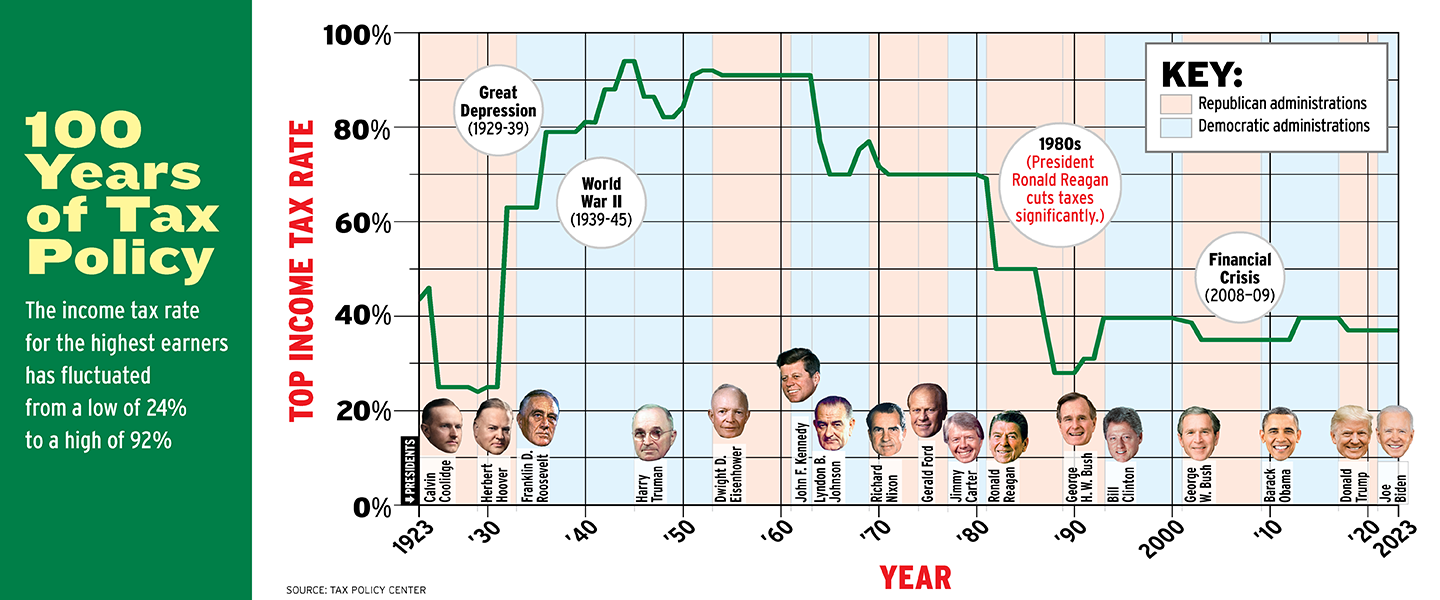Tax policy should start with making sure each of us is paying our fair share. Too often, wealthy Americans are using loopholes and government-funded tax breaks to pay overall lower tax rates than middle-class and low-income Americans.
Taxes are the key revenue stream for our federal, local, and state governments. This money funds essential services that benefit each and every one of us. Every day we can see the benefits that taxes have on our society: They fund schools, health care, scientific research, border security, national defense, and much more. These are programs that benefit us all, directly or indirectly, and help us build a stronger, more prosperous society.
Unfortunately, thanks to decades of bad choices in Washington, these programs are in danger. The federal government currently has more than $32 trillion in debt, and the cost of that debt grows daily.

